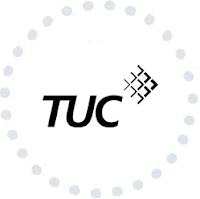Nazi Germany murdered six million Jews in a systematic, state-sponsored campaign of persecution and extermination now known as the Holocaust. It persecuted, incarcerated and murdered millions of its own citizens, and those of the countries it invaded, on the basis of skin colour; disability; sexual orientation; ethnicity; religious belief or political affiliation.
In 1933, when the Nazis came to power in Germany, the Jewish population of Europe stood over nine million. The Nazi campaign to exclude and persecute Jews, and others, as “life unworthy of life” began. By war’s end, close to two out of every three Jews in Europe had been murdered in the Holocaust.
During the war years (1939-45), the Nazis created ghettos to isolate Jews and established concentration camps to imprison all people targeted on ethnic, racial or political grounds. Between 1942 and 1944 Nazi Germany deported millions of people from the territories it occupied to extermination camps to be murdered in gas chambers. At the largest killing centre, Auschwitz-Birkenau, transports of Jews arrived almost daily from across Europe.
Although Jews were the primary victims of Nazi racism, others targeted for death included tens of thousands of Roma (Gypsies) and at least 200,000 mentally or physically disabled people (source:www.ushmm.org). As Nazi tyranny spread across Europe, millions of people were persecuted and murdered. More than three million Soviet prisoners of war were murdered or died of starvation, disease or maltreatment. The Nazis killed tens of thousands of Polish intellectual and religious leaders; deported millions of Polish and persecuted and incarcerated homosexuals.
Millions of lives were lost, or changed, often beyond redemption. The consequences of this loss and persecution are felt today by Holocaust and genocide survivors, their children and grand-children, in the UK and around the world.
Holocaust Memorial Day
Holocaust Memorial Day (HMD) is commemorated on 27th January each year. This marks the anniversary of the liberation of the Nazi concentration camp Auschwitz-Birkenau.
HMD aims to commemorate, to educate and to prompt action in the UK. HMD commemorates the lives of those lost in the Holocaust; as a result of Nazi persecution and in more recent genocides. It educates about the Holocaust and it lessons for the present day. It prompts action in the UK highlighting the continuing dangers of racism, anti-Semitism and all forms of discrimination.
The tragedies of Cambodia, Bosnia, Rwanda and Darfur show that the international community, and each of us as citizens, has not truly understood the lessons of the Holocaust.
Ultimately the aim of HMD is to motivate people individually and collectively, to ensure that the horrendous crimes, racism and victimisation committed during the Holocaust and more recent genocides are neither forgotten nor repeated, whether in Europe or elsewhere in the world.
HMD is distinct from Yom HaShoah, the Jewish day of remembrance for the Jewish victims of the Nazis, that falls in late April.
Holocaust Memorial Day events
Hundreds of events and activities are held to mark Holocaust Memorial Day in local communities and schools across the UK.). Every year, a different theme is announced for Holocaust Memorial Day. In 2011, the theme is Untold Stories.
Why Holocaust Memorial Day is relevant to each of us today
The Holocaust was a defining event of the twentieth century and is part of both our history and our contemporary life.
History:
- Refugees fled here from Nazi persecution.
- Britain was engaged in a war to defeat Nazi occupation and oppression.
- UK soldiers liberated Bergen-Belsen concentration camp.
- Survivors and refugees who rebuilt their lives here have made major contributions to present day UK society.
- Britain played a lead role in developing the international conventions protecting universal human rights after WW2.
Nazi ideology was founded on racism, Anti-Semitism and discrimination, creating a fascist state that rejected human and civil rights. The evils of prejudice, discrimination and intolerance continue to exist in Britain. We have lessons to apply today, as individuals, communities and institutions within our society. Hate crimes and attacks against people because of race or ethnicity; sexuality; disability; or religion continue to take place. HMD acts as a reminder to all of us of our responsibility to protect the civil and human rights of all people in our society and around the world.





